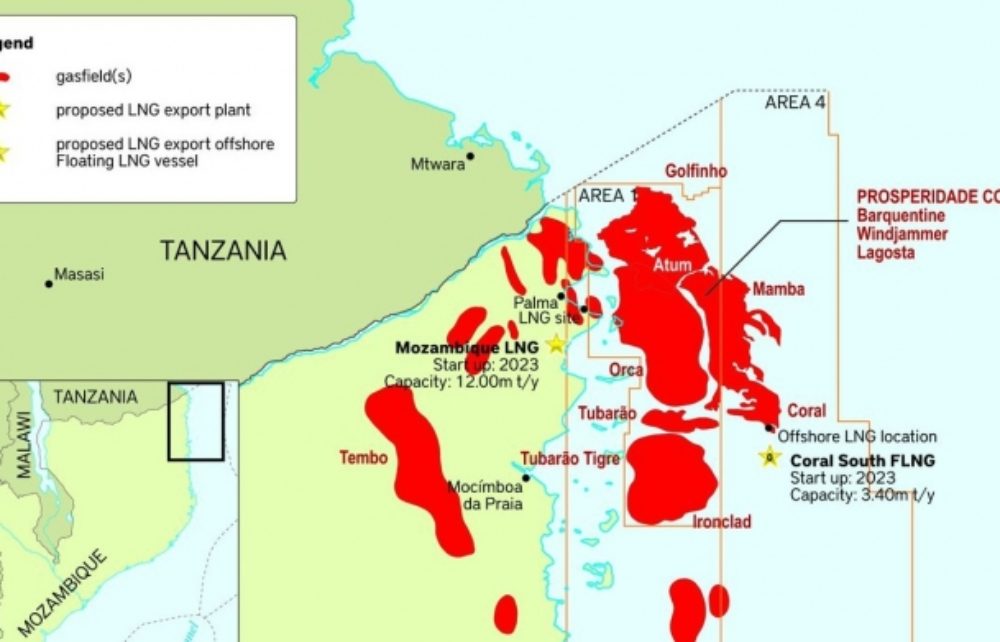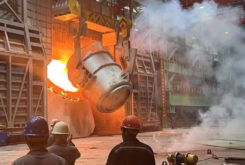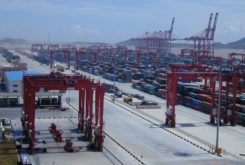The financing of about USD 15.8 bn for the Area 1 liquefied natural gas (LNG) project in Mozambique secures the country´s future as a globally significant energy supplier, according to the Economist Intelligence Unit (EIU).
On July 15th, the African Development Bank (AfDB) released a statement confirming that financing of about USD 15.8bn for the Area 1 LNG project had been signed, with a consortium of 20 banks and financial institutions backing the project.
The project is led by French oil major Total, which is moving ahead despite considerable negative headwinds, that include “weak global LNG demand, the growing Islamist insurgency in Cabo Delgado province, an outbreak of the coronavirus (Covid-19) at the Area 1 site and Mozambique’s long-running debt crisis”, the EIU says in its latest report on Mozambique.
In April Total paused construction at its Area 1 site in response to the spread of the virus there. The site, on the Afungi peninsula near the town of Palma in Cabo Delgado, had become the epicentre of the pandemic in Mozambique, with a large number of confirmed cases.
Work has since restarted, and Total has reaffirmed its scheduled start of production, which is set for 2024.
In June the consortium received a USD 2.25bn guarantee from the government in lieu of an immediate equity contribution from the state-owned oil and gas company, Empresa Nacional de Hidrocarbonetos (ENH), confirming that it would pay ENH’s equity share if required.
According to the EIU, “the ongoing issue of Mozambique’s default on its illegal debts which has curtailed access to external credit for the sovereign—will not inhibit the government from guaranteeing the Area 1 project”.
“The Area 1 project secures Mozambique’s future as a globally significant energy supplier, involving USD 25bn in foreign direct investment (FDI), an amount far in excess of Mozambique’s total current GDP (which stands at around USD 14bn), and set to produce export revenue of around USD 2bn annually”, it adds.
Gas output from the project is expected to be 12.9m tonnes/year (t/y), although follow-on investment projects could expand production to as much as 50m t/y over several decades.
The EIU expects that “commercial interest in Mozambique will continue to grow and “the gas industry is likely to be a major driver of growth and government revenue when output begins in the mid-2020s”.
On July 5th Sasol, a South African petrochemicals company, announced that it would relinquish its licence to explore for liquefied natural gas (LNG) in the offshore Block 16 and 19.
The company’s decision follows an evaluation of the block’s exploration potential alongside pre-feasibility work on the Environmental Impact Assessment (EIA).
Sasol is still exploring for gas at the onshore fields of Pande and Temane, in the province of Inhambane in central Mozambique. Confirmed offshore and onshore gas discoveries in Mozambique have been centred in the Rouvima Basin, in the northern Cabo Delgado province, with further exploration work ongoing at onshore and offshore sites along the coastline.
The global climate, “alongside domestic dynamics in Mozambique, is likely to have contributed to Sasol’s decision”, the EIU adds.




